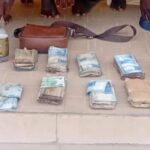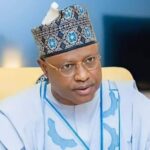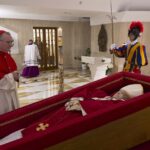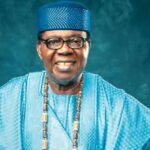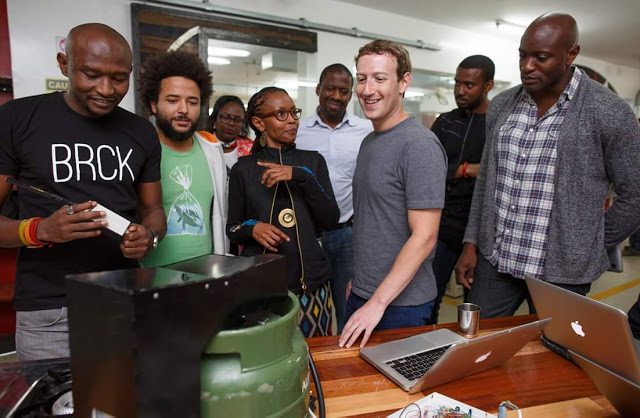
Mark visited iHub technology hub in Nairobi, met with developers and partners, and explored how the country’s pioneering mobile money ecosystem is evolving.
Zuckerberg is in Kenya to see how technology innovation is changing the country, learn more about what mobile entrepreneurs are doing with the latest technology, and find out how Facebook can better support small businesses, developers and content creators across growing markets.
He landed in Kenya yesterday after visiting Lagos, Nigeria. He was particularly excited to see how mobile money and social media are driving commerce in the region and creating new opportunities for entrepreneurs and communities.
READ: See PHOTOS OF Mark Zuckerberg eating swallow in Kenya
One of Zuckerberg’s first stops on the trip was iHub, an Innovation hub and hacker space started in March 2010 by TED fellow and entrepreneur, Eric Hersman. Here, he met developers and entrepreneurs:
Edna Kwinga, Chief Human Resource Officer and Marie Amuti, UX designer at Twiga Foods a mobile based-business-to-business supplier of fresh fruits and vegetables.
Eric Thimba and Porgie Gachui co-founders of Mookh, a digital payments start-up.
Wandia Gichuru, CEO, and Makena Mutwiri, Head of Marketing of Vivo Active Wear, an online women’s clothes store does most of its business via Facebook, Instagram and Whatsapp. The transactions are conducted with mobile money.
Zuckerberg also spent some time hanging out with developers in The Community Space and marveling over the ingenuity of BRCK, an American-owned, Kenya-based start-up that built a rugged, self-powered, mobile WiFi device which connects people and things to the internet in areas of the world with poor infrastructure.
Mark wrote on his Facebook page:
“Just landed in Nairobi! I’m here to meet with entrepreneurs and developers, and to learn about mobile money – where Kenya is the world leader”
“I’m starting at a place called iHub, where entrepreneurs can build and prototype their ideas. Two of the engineers I met, Fausto and Mark, designed a system to help people use mobile payments to buy small amounts of cooking gas, which is a lot safer and better for the environment than charcoal or kerosene. It’s inspiring to see how engineers here are using mobile money to build businesses and help their community”.


![PHOTOS Of An Eclipse Of The Sun That Happened This Morning At Port Harcourt [PHOTOS] 2 PHOTOS Of An Eclipse Of The Sun That Happened This Morning At Port Harcourt [PHOTOS] 2](https://www.kanyidaily.com/wp-content/uploads/2016/09/2-150x150.jpg)
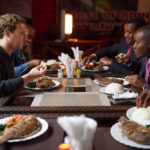


![Governor Umar Bago Orders Arrest Of People With Dreadlocks In Niger State [Video] 9 Governor Umar Bago Orders Arrest Of People With Dreadlocks In Niger State [Video]](https://media.kanyidaily.com/2025/04/23071323/Umar-Bago-150x150.jpg)
![Kano Hisbah Destroys 'Holy Site' Where Pilgrims Drank Mud Water Believed To Bear Prophet’s Footprint [Video] 11 Kano Hisbah Destroys 'Holy Site' Where Pilgrims Drank Mud Water Believed To Bear Prophet’s Footprint [Video]](https://media.kanyidaily.com/2025/04/22145922/Screenshot_20250422_122348_Layout_1745321207-150x150.jpg)
